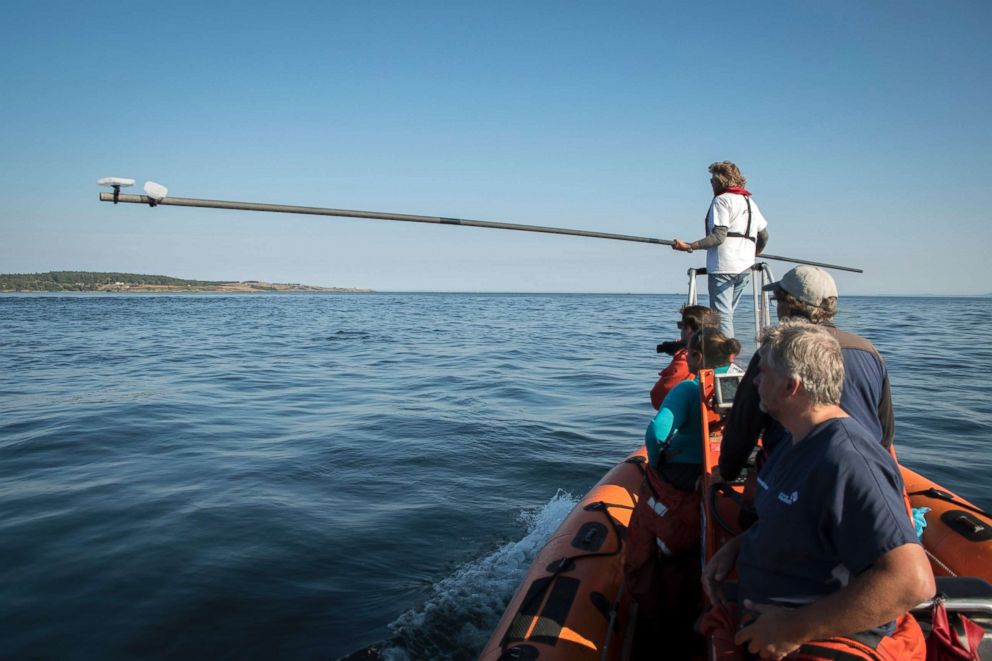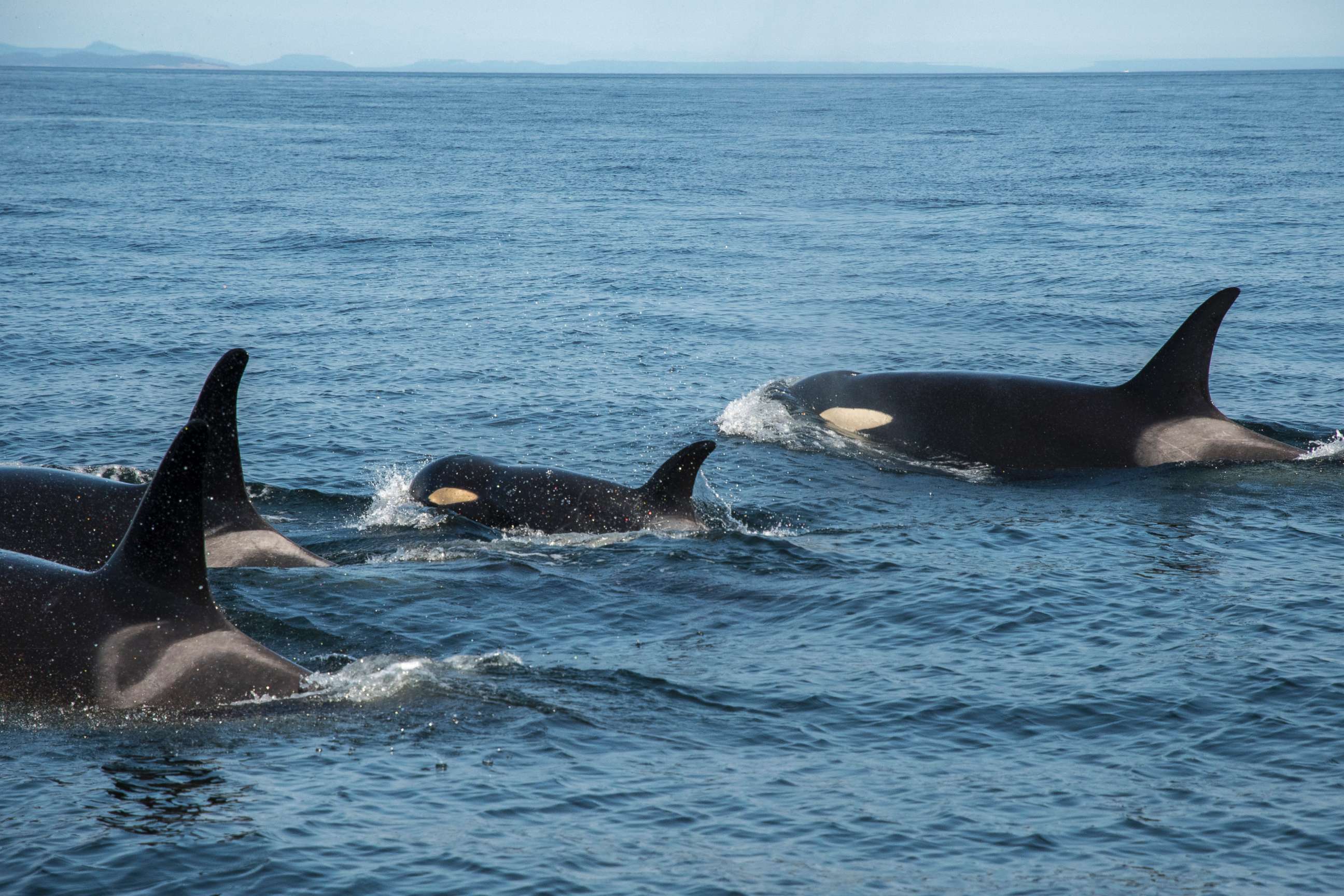Ailing orca gets antibiotics via dart in unprecedented maneuver, scientists say
While skinny and small, the orca kept up well with her mother and siblings.
Veterinarians managed to give antibiotics to an ailing juvenile orca, an unprecedented action for marine life in the wild, scientists said.
An international team of veterinarians, researchers and biologists spent the past few weeks scouring the waters near the border of British Columbia and Washington State trying to find the 3-year-old killer whale J50 also known as Scarlet.
On Thursday, they located the whale, which was underweight and sick.
The team, which included Vancouver Aquarium’s veterinarian, conducted a visual assessment, obtained a breath sample that will help assess any infection, and administered antibiotics through a dart, Oceanic Atmospheric Administration (NOAA) Fisheries wrote on its website.

The sick whale is one of the approximately 75 of the southern residence killer whales living off the West Coast.
Response teams reached the pod in Canadian waters and followed the whales into U.S. waters near San Juan Island.
Vancouver Aquarium veterinarian Martin Haulena said during a press phone briefing on Friday that “most” of the antibiotic was delivered to Scarlet through the dart.
“And that was a great thing,” Haulena said.

The next steps are to continue observations and to consider trial feeding as a future route for delivering medications, NOAA wrote on its website.
While very skinny and small, Scarlet kept up well with her mother and siblings, NOAA said on its website.




